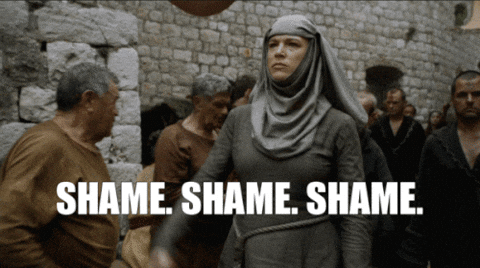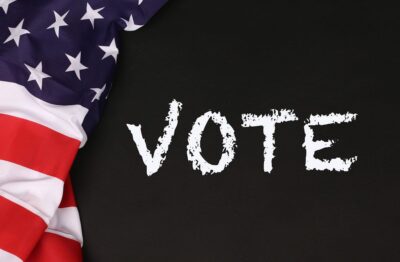Religious types have used shame as a weapon for millennia. For thousands of years, groups have used shame as a cudgel to keep you in line, to force you to do something you don’t want to do, and to capitalize off of that exploited emotion to benefit themselves.

That said, shame can be good! It can be a useful tool for self-reflection, for learning from your mistakes. I am wholly on board with having the confidence to stand up to your detractors, but sometimes your detractors aren’t wrong, and wisdom only comes in realizing that sometimes you, too, are wrong, and need to adjust your personality or beliefs.
I mean, you don’t have to, but when you don’t, you get narcissists who will burn the world to ash rather than admit they made a mistake, and I mean a real mistake not a mistake that makes them look humble and good. False humility fucks us over way too often.
When I talk about shame as a tool, I’m talking about causing harm to others, realizing it, reflecting on your behavior and choices that lead to the harm, and then working to make amends.
Shame is a healthy emotion, it’s beneficial when it’s positive, and yes, shame can be positive. It just has to be put into context where it can be made useful. If you’re just hating on yourself with no real purpose behind it, you’re doing nothing but creating a negative space, which will only hurt you and the people close to you.
Instead, use shame as a mirror, use it as a review tool, as a way to go back and explore where you went wrong, so you can formulate a plan to make it right again.
For example, in intersectional communities, we talk a lot about white guilt. When I talk to people who aren’t white, people who are minorities, who have been oppressed, they’ll often voice frustration about white people who either deny anything wrong ever happened, or the ones who automatically start hueing and crying about being guilty and they’re SO SORRY, and then that’s as far as it goes, because white guilt isn’t about experiencing the shame of our past and making amends, it’s about saying “I’m sorry” and expecting things to be good.
Nothing has been amended, nothing remedied, just a display of self-flagellation and then “we cool?” which is all indicative of immense privilege, and serves no purposes except to assuage the feelings of those white folks engaging in it.
If you’re not looking at yourself and saying “when I harmed this person, why did I do it? What can I do to be a better person and center their struggles instead of centering myself?”
When you start doing that, you’re on the right track. A key element of that is shame, where you can acknowledge your past failings, and work to make them better, hence the useful tool.
Like most good tools in the mental health pantheon, religious groups used this to their advantage. Of course, blaming it on religious groups solely wouldn’t be fair, it’s also something our corporate government does to get you to bend to their demands while making it seem like you’re the one at fault and not them.
Abusers have long used this tool to control, which is why you need to know more about it and how to wield it, so that you become resistant to their manipulations against you. Shame can be a double edged sword, but don’t throw it out entirely, it does serve a truly useful purpose, and we need it.
Quite frankly, I see a lot of people who could use a good dose of shame, especially with how they behave in an environment where the people being abused are the poor, the disabled, and other minority groups who have to deal with all of the emotional language of shame, but experience none of the benefits.
THAT is truly the shame in all of this, and we need to do better as white folks.
.Red


